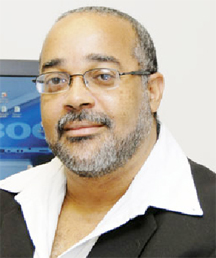Forty years ago on the 11th January 1973, the inaugural meeting of the Caribbean Examinations Council was held in Barbados. At this historical event, two visionaries of the regional integration movement Rt. Hon. Errol Walton Barrow of Barbados and Hon. William Demas spoke to the impulse and the mission that this post-colonial enterprise embodied.
Demas explained that “the establishment of Council should not be seen as just a change of examining bodies, but as part of a conscious effort on the part of regional governments to restructure, redirect and remodel the schools system of the Caribbean with a view to relating them to the environment, the problems, and the needs of our societies.”

Barrow was even more transformative in his expression of that vision:
“I consider the Caribbean Examinations Council to be an instrument of change… The time is therefore ripe to take this step to Caribbeanize our education as well as the whole system of examinations which influences educational practice and methodology.”
It took a further six years of meticulous and painstaking foundation building and systems design before the first examination – the Caribbean Secondary Education Certificate – was offered to a cohort of 30,276 candidates from 13 Participating Territories. Forty years later just under 6.5 million Caribbean citizens from 19 territories including three of the Dutch-speaking Caribbean have participated in this particular certification.
Forty years later the Caribbean Examinations Council offers a full suite of examinations and certification that can support the emergence of a seamless education system in the region from primary to pre-university. Forty years later, CXC’s certification is accepted internationally on all continents of this highly competitive world.
The familiar landscape of the past forty years is changing exponentially and today we face challenges of a much greater order of magnitude while contemplating opportunities of significantly wider amplitude. And while we celebrate and applaud the accomplishments of these past 40 years, we must be guided by the acute awareness that what got us through this period will not get us through the next 10 years. The world is an infinitely more competitive arena; knowledge has been elevated to being a game-changing factor of production; and national competitiveness is no longer about the altitude of the best learners but about the standard of accomplishment of the rest. As I indicated at the opening of the 2012 Meeting of Council in Anguilla, “yesterday, competitiveness was measured by the cream of the crop; tomorrow, it will be measured by calibre of the cohort.”
There is therefore an unavoidable imperative of rethinking education in the Caribbean. There are contradictions in life in which the past returns as future and this is the historical moment in which we must reaffirm and restore our regional resolve. This 40th Anniversary is the time to recommit to that vision – far ahead of its time – that understood the power of examinations to serve as instruments of educational transformation rather than as impositions of petrified standards. Now is the time to recommit to the vision that the guarantee of Caribbean sovereignty lies in our capacity for collective cooperation and that our competition is not Jamaica but Japan; is not Trinidad but Thailand; is not Barbados but Brazil.
Now is the time to conclude – with the progressive decline of every resource based industry upon which we have relied – that the future of this Caribbean and the final guarantor of our survival and sustainability is the human resource capacity of our region. We at CXC have committed ourselves to assuring the global human resource competitiveness of the Caribbean through the provision of quality assurance in education and comprehensive certification.
Let us therefore give thanks to God for His graces to this regional institution for the calibre of service that it has rendered to Our Caribbean. We pay tribute to the visionary founders – one of whom Sir Roy Augier is thankfully still with us – and to all who preceded us in leadership and in service. We acknowledge the work done by the succession of Registrars Major Rudolph Daniel, Mr. Wilfred Beckles, Mrs. Irene Walter, and Dr. Lucy Steward and we recommit ourselves to the awesome historical responsibility that we have inherited in this sterling institution.




